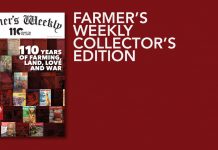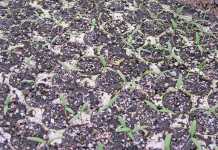Well, to me it seems as if our current government is doing exactly that.
I mean, if you take away 50% of commercial farmers’ land, the country’s food production will an all probability decrease accordingly. I hope to God we’ll be spared this tragedy.
My common sense tells me the 50% plan was hastily concocted by politicians to gain votes. How on earth can they expect the farmer or the workers to farm sustainably if this travesty should become reality?
Have they no clue about the economic and financial realities and constraints of sustainable farming? Don’t tell me they’ve never heard about economies of scale and the fact that farming industry does not have a choice but to go bigger and better.
Do hose behind this plan really think giving 50% of a farmer’s land to the workers is going to make those farm workers successful and sustainable commercial food producers.
Better to create new, viable opportunities for all.
If the 50% has more to do with the elections than reality, it’s downright cruel to toy with people’s emotions and expectations. In fact, that’s the most distressing thing about any election. False hopes are created by vote-hungry politicians who know full well they’ll never be able to deliver on their expansive promises.
But before we make ourselves even more angry by repeatedly going over the insanity of this new ‘land reform’ proposal, I suggest we all hold our breaths and vasbyt until election day on 7 May.
No matter how hard that might be.









